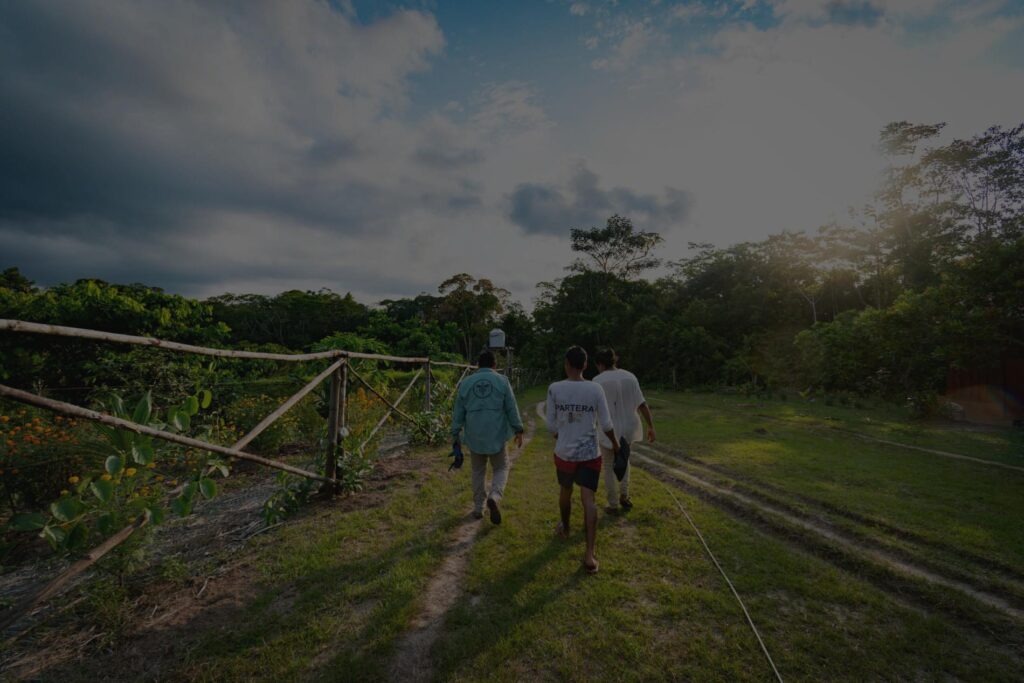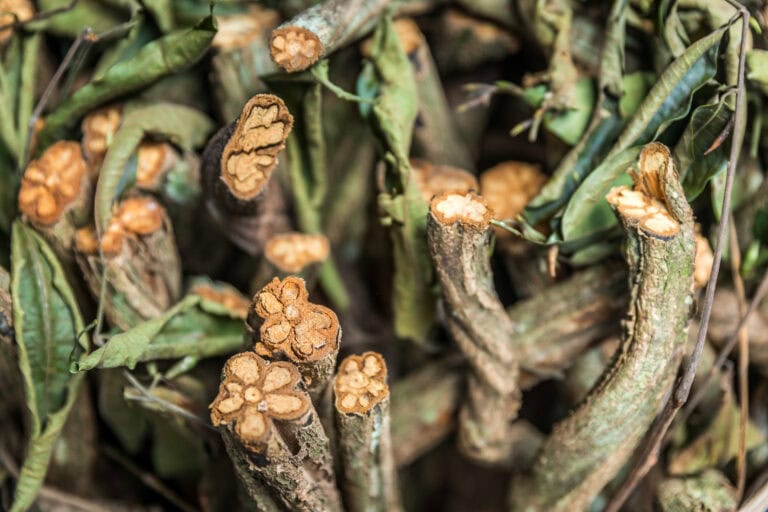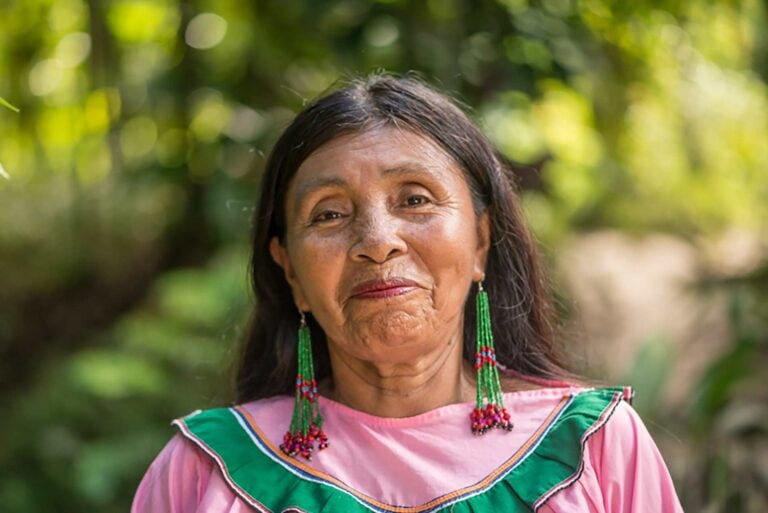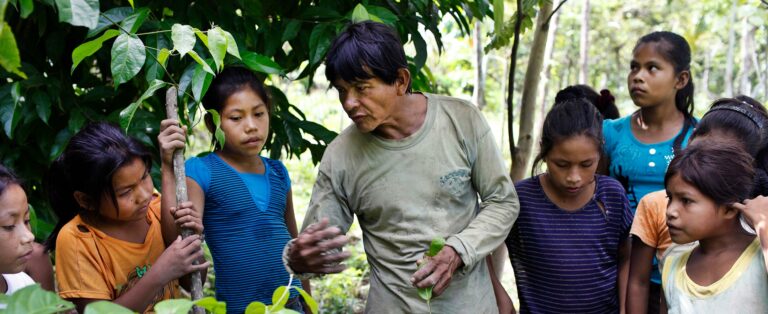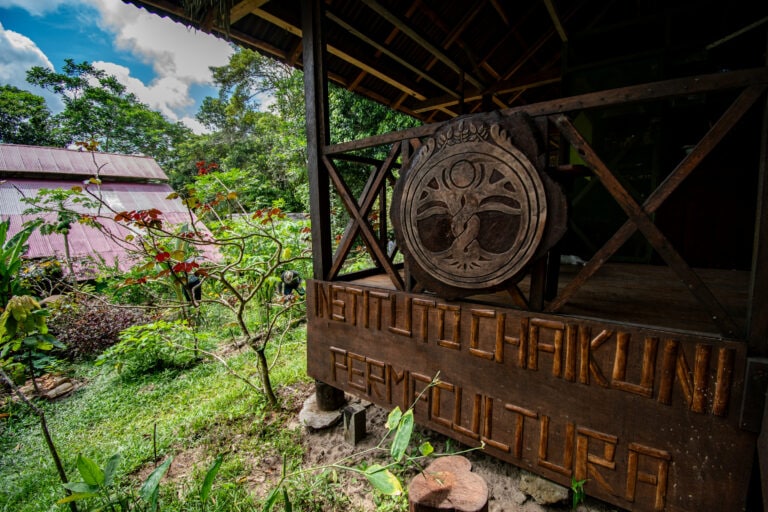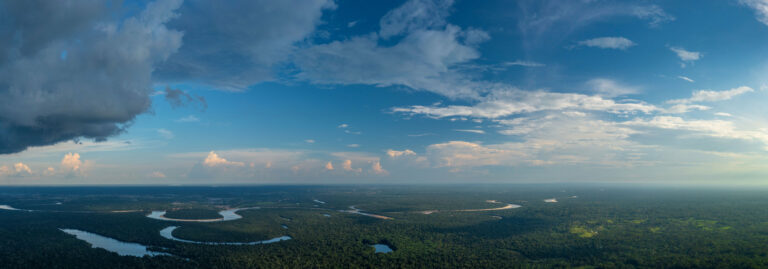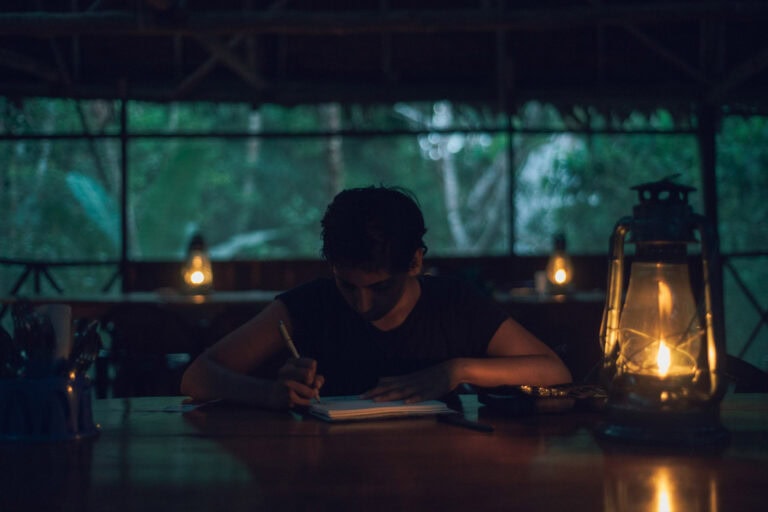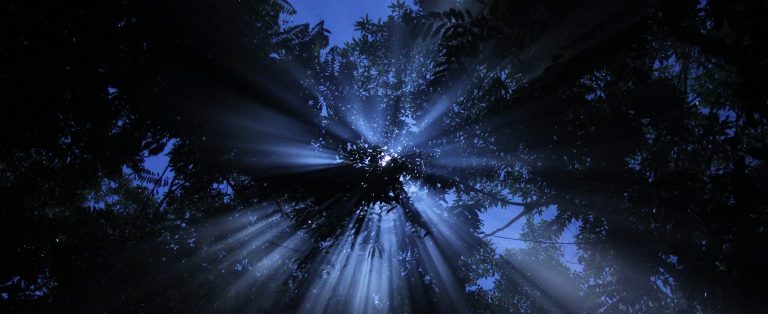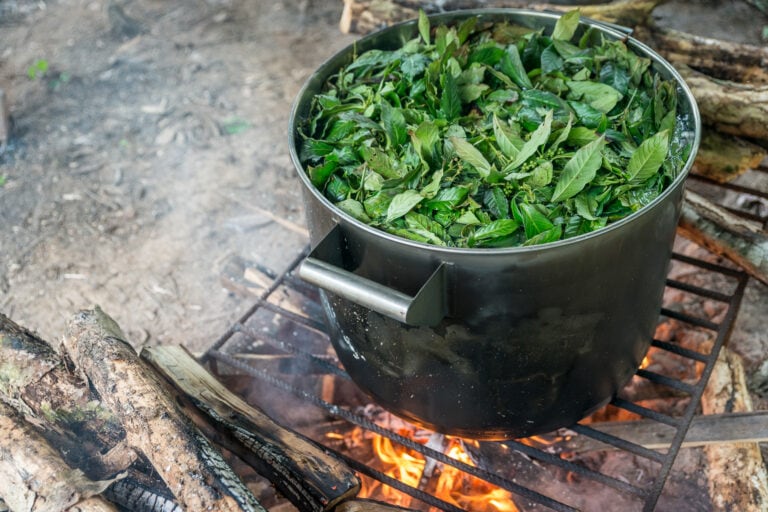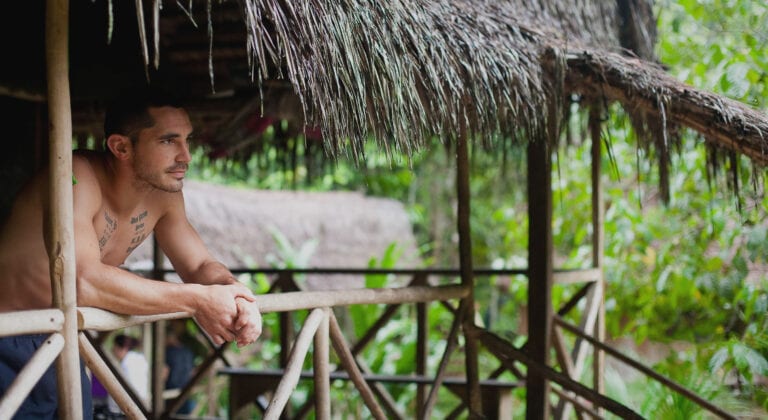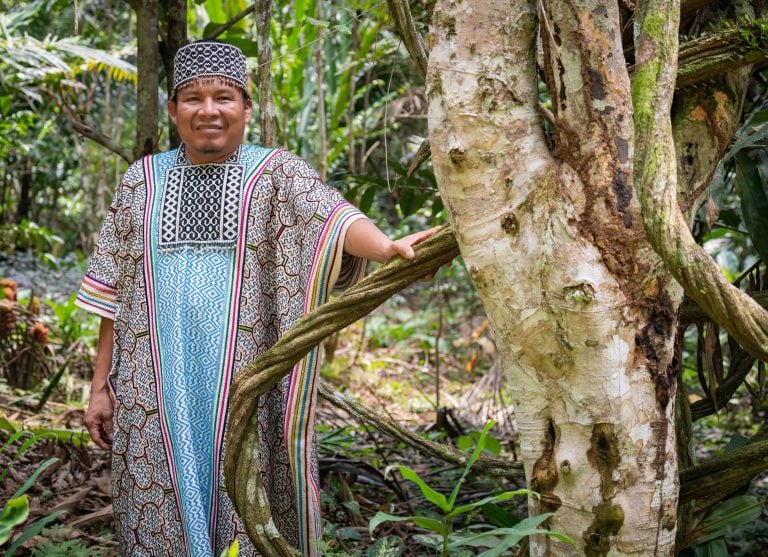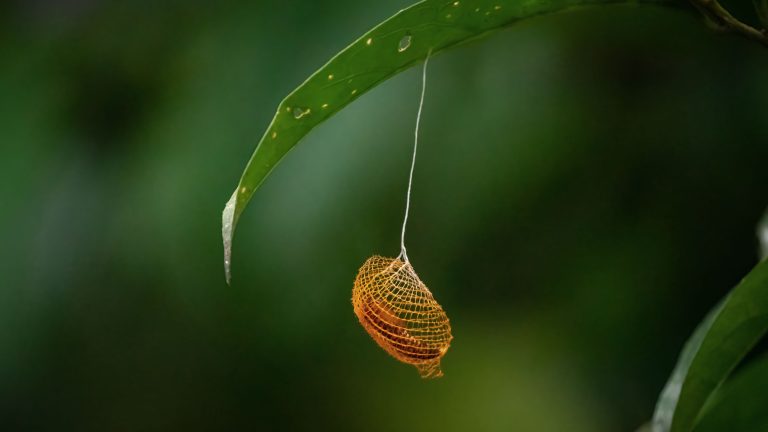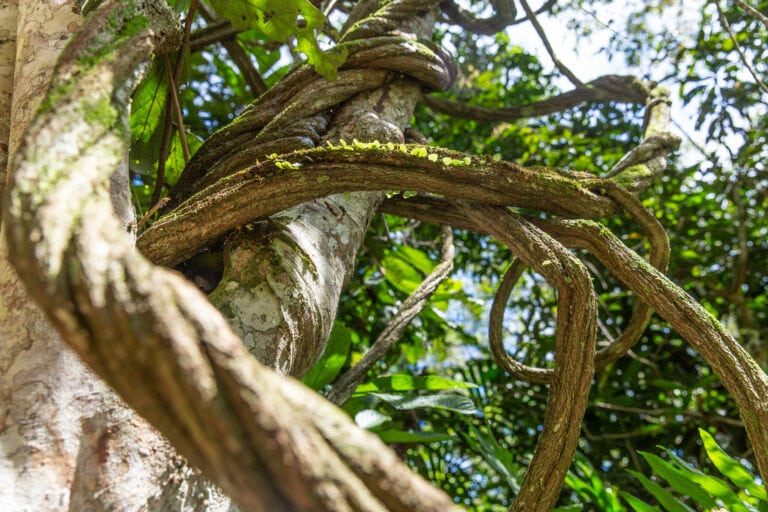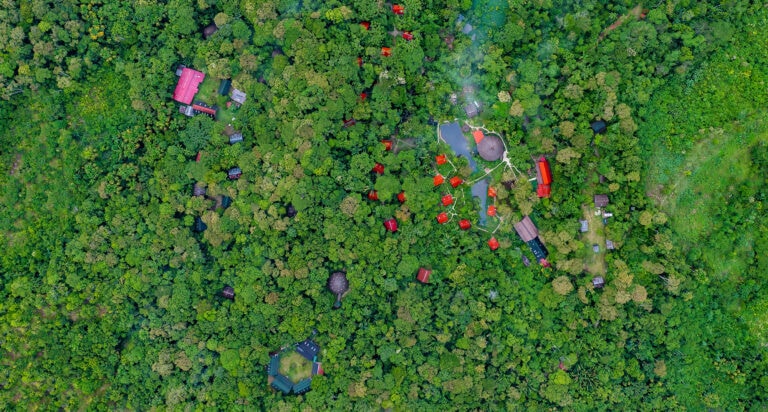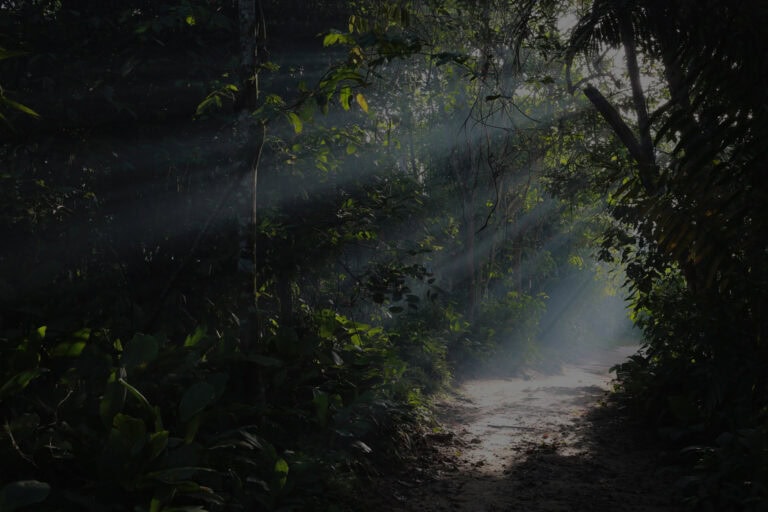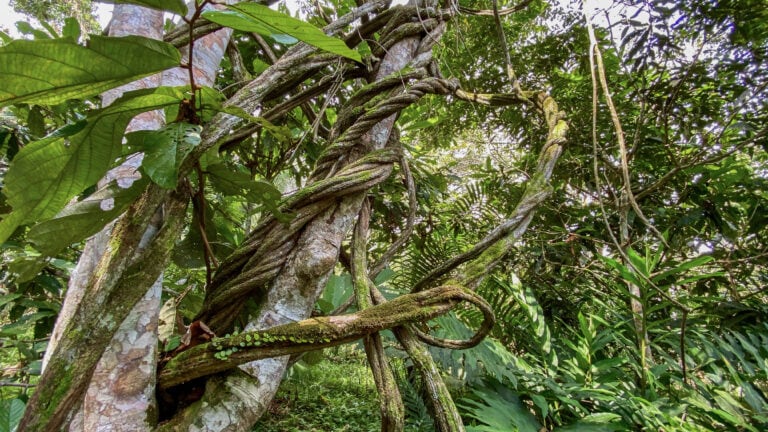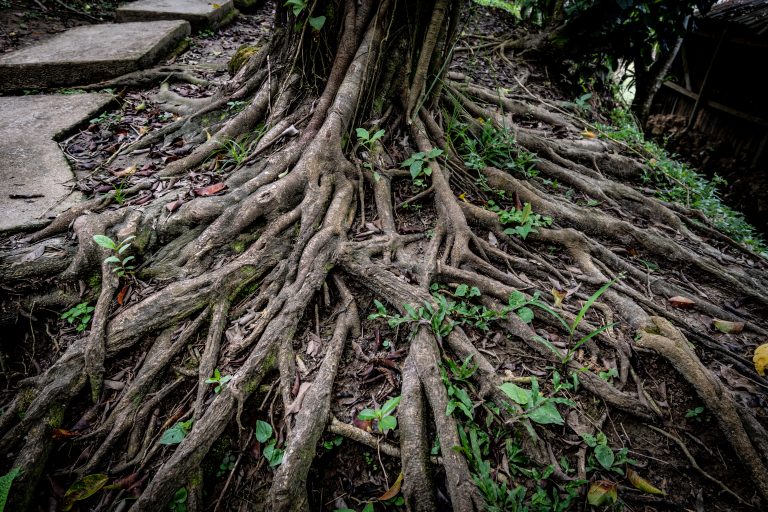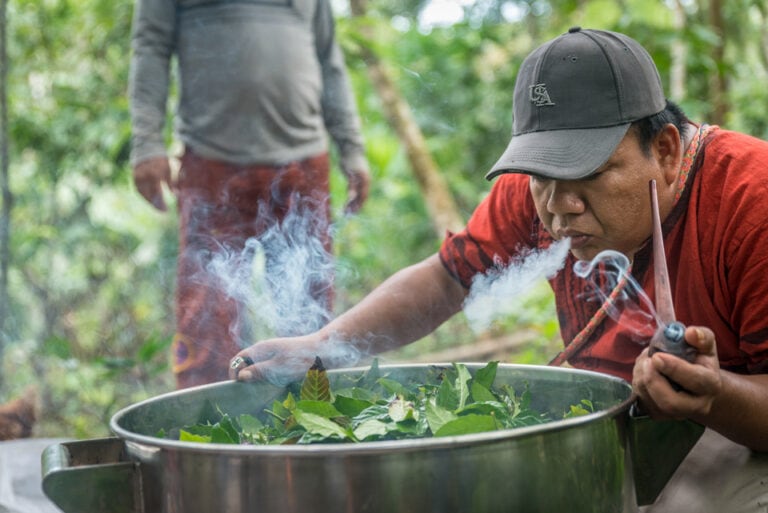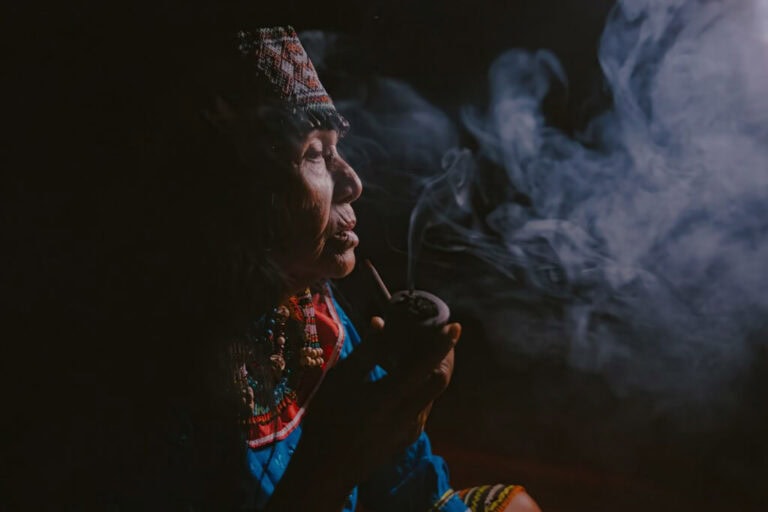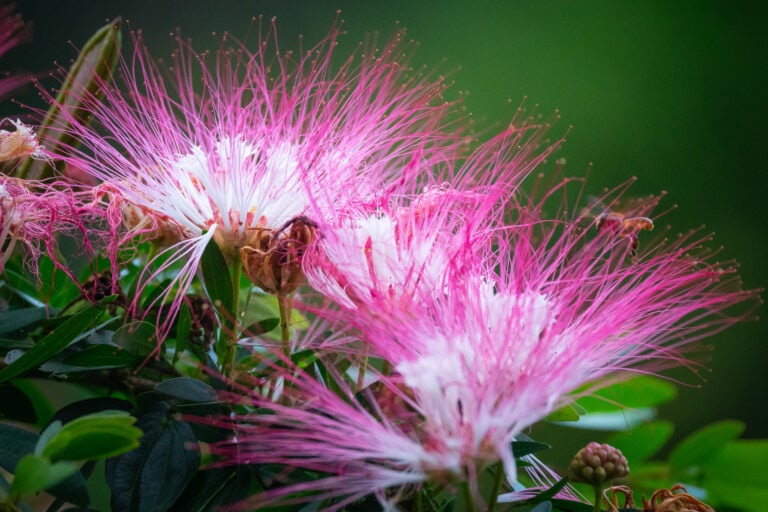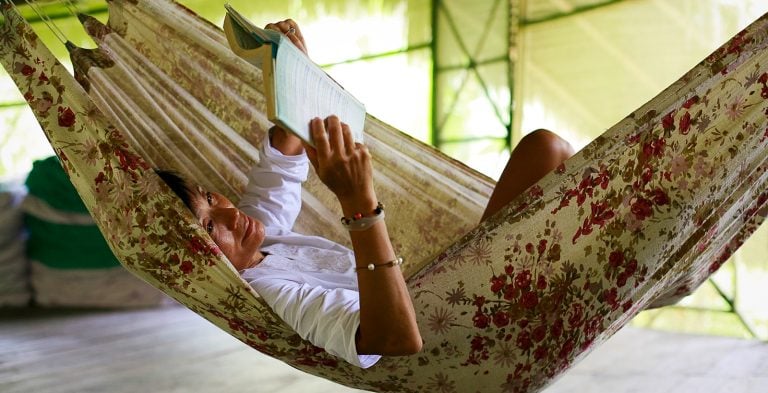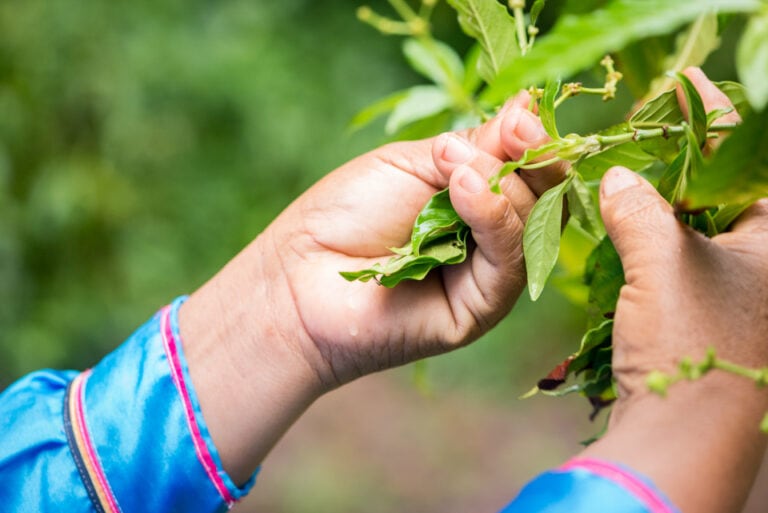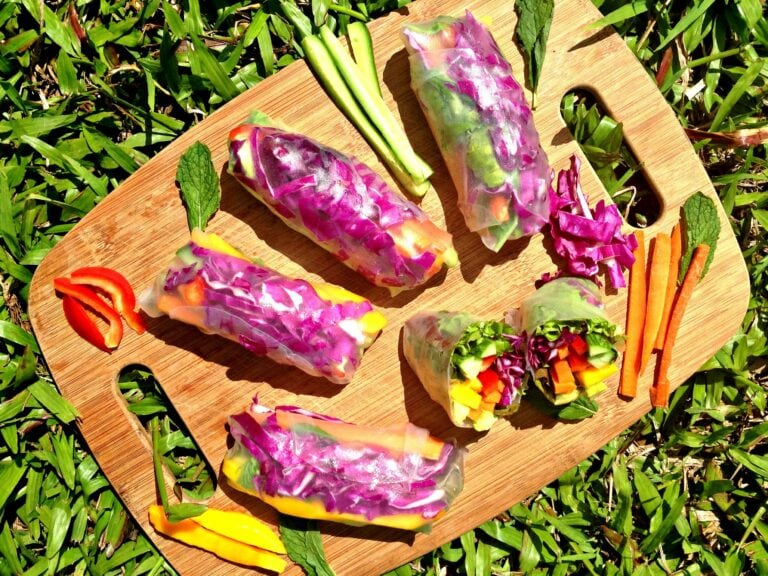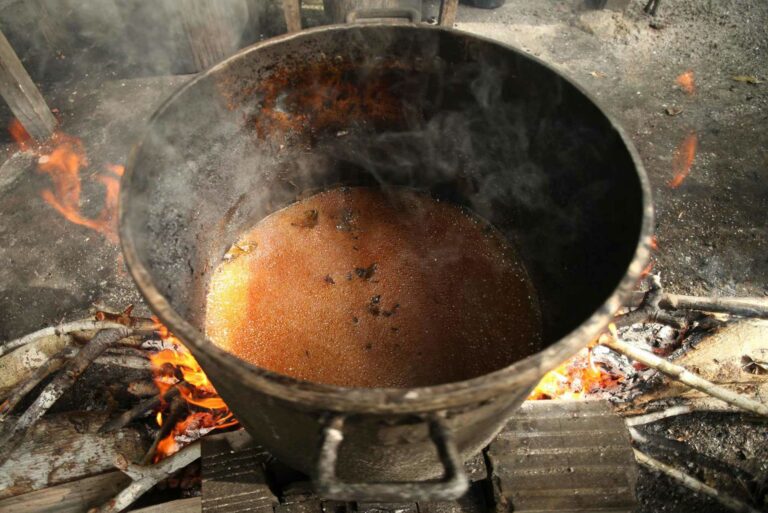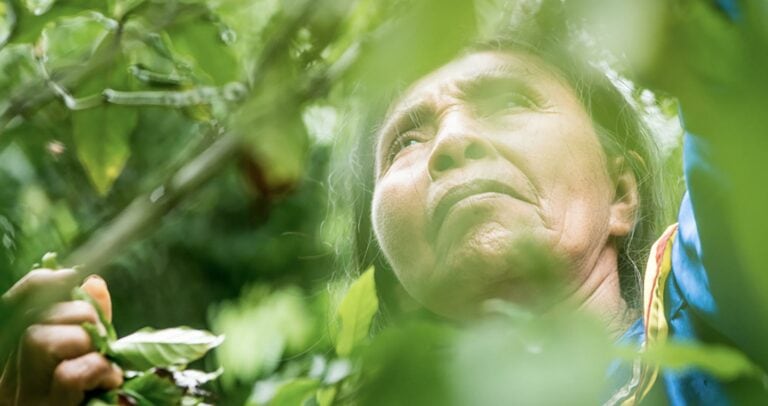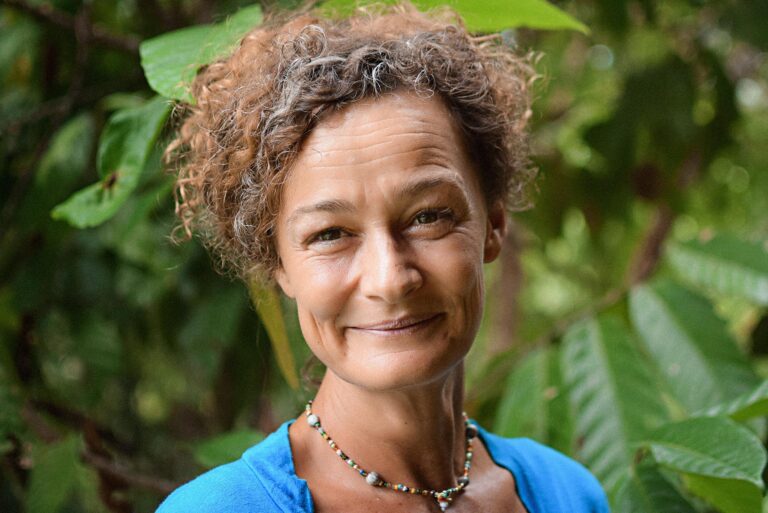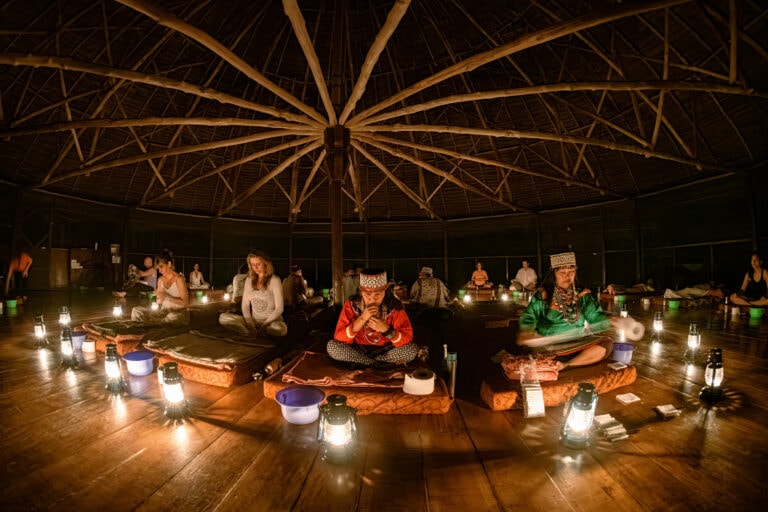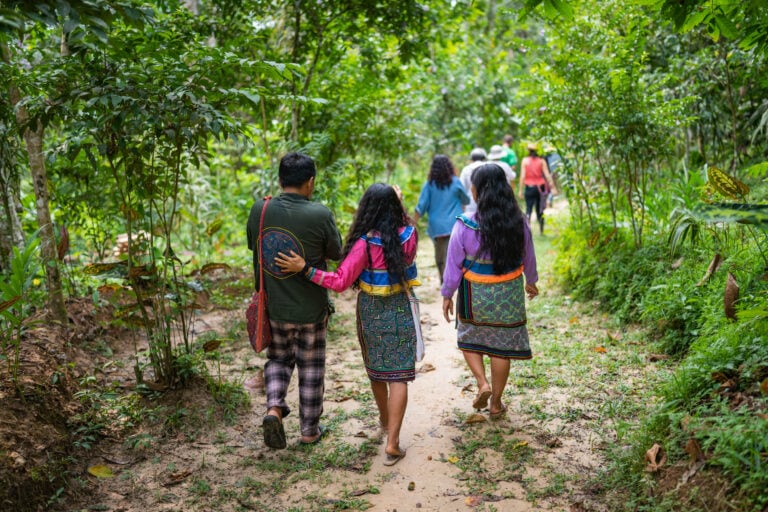Through our focus on working with plant spirits at the Temple, it was clear over a decade ago that we needed to expand our inner/healing work into an all-encompassing focus on how we relate to the world around us. From health care to planet care.
Permaculture is exactly this; a holistic approach to regenerative living that highlights individual and community responsibilities for sustainability and focuses on choices, values, ethics and how human beings interact with the natural world. Sustainable living is a lifestyle choice that considers a person’s relationship with the community and the natural environment and seeks harmony with both.
Understanding that Permaculture is much more than just sustainable agriculture; it is an integral view that incorporates the environment, energy, resources, housing, community, technology, education, the arts, spirituality, healthcare and more.
It is a positive, solution-based way of thinking and an integrated design system that provides a realistic alternative for future sustainability, creating resource-efficient and productive human environments, which reduce our footprint on the Earth.
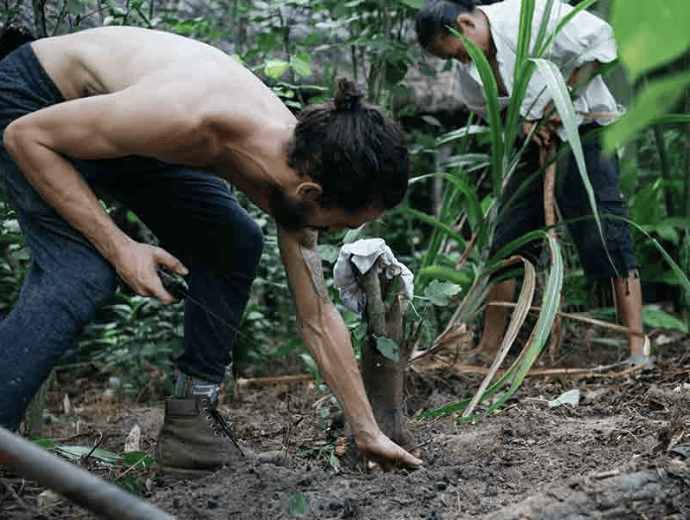
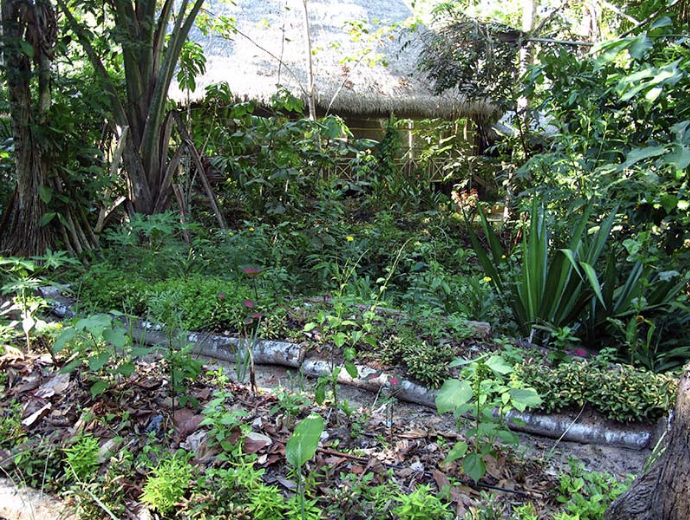
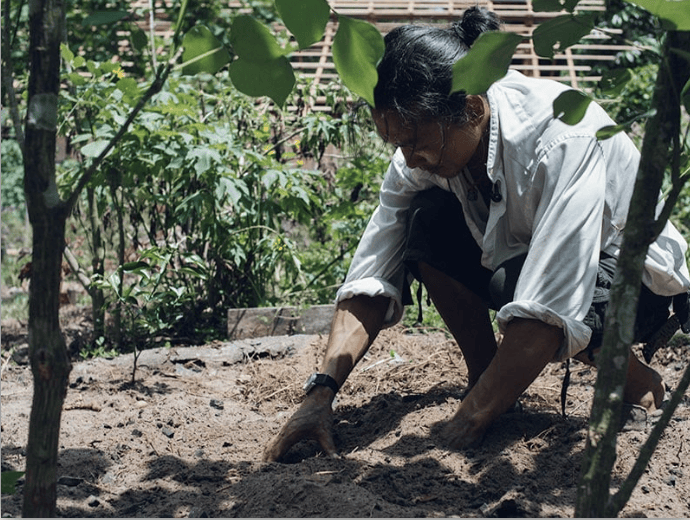
Permaculture provides a framework for consciously designed landscapes that mimic the patterns and relationships found in nature, providing and ensuring diversity, stability, and resilience. These systems yield an abundance of shelter, water, energy, and food for the provision of local needs.
Since 2013, together with our sister non-profit organization, the Chaikuni Institute, we have been implementing a permaculture master-plan design around 300 hectares of Temple grounds, along with providing permaculture education to local people in the five neighboring villages and supporting the implementation of regenerative agroforestry projects throughout the villages as an alternative to city jobs or income from industrial development projects in the Amazon.
Located around 1 hour by boat from Iquitos, the local communities nearby have been left behind by the rapid development of the city, and unfortunately, damage has been done to the local forest ecosystems by slash-and-burn agriculture.
We are committed to working with locals from our nearby villages to build both systems and capabilities for the regeneration of the eco-system, sustainable land management, access to both conventional and traditional medicine, education, and other key capacities.
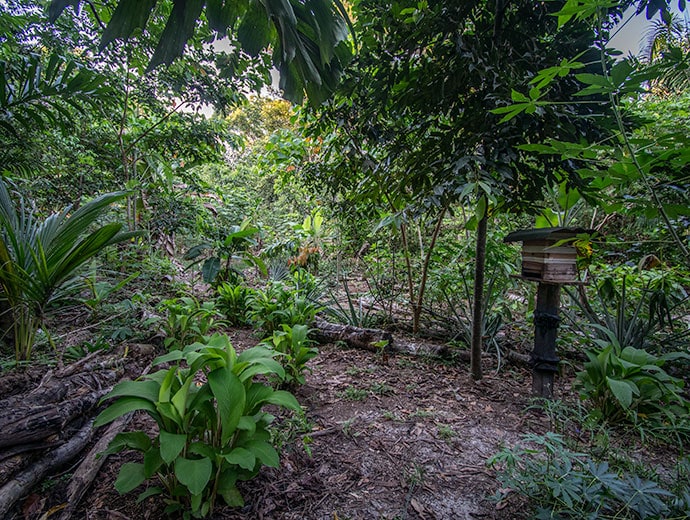
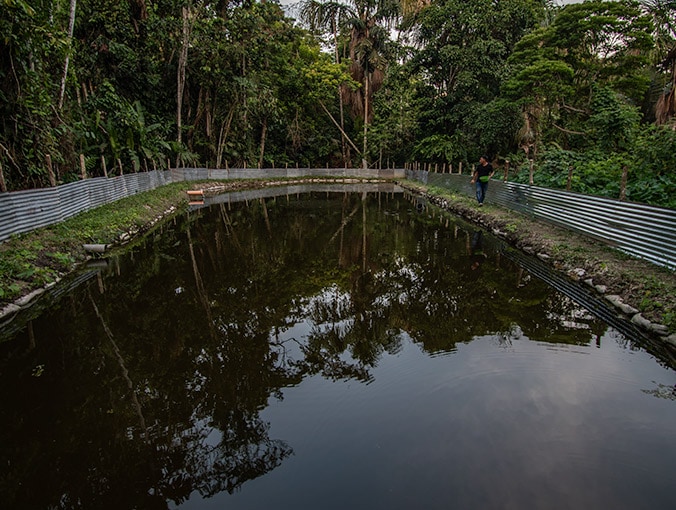
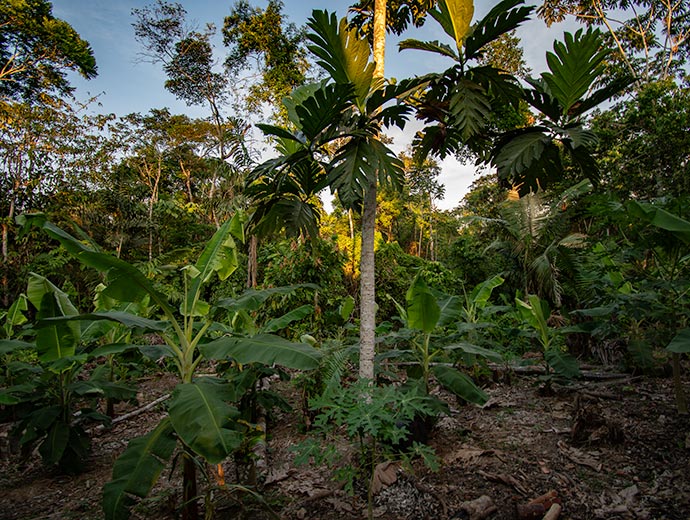
Permaculture in the Amazon
The Permaculture program of the Chaikuni Institute works to recover, investigate, and foster healthy and regenerative ways to interact with our environment. We bridge traditional indigenous land-management techniques with modern permaculture methods to develop sustainable, integrated alternatives to land-use.
In 2018, the outreach aspect of our permaculture work gained vital importance through our ‘Ayni Ayahuasca‘ project. Since then, our main focus has been to promote diverse regenerative agroforestry systems – which we call “chacras integrales” – first with our neighboring villages and later with indigenous communities.
- 2012: In early 2012, a permaculture masterplan was developed with the help of renowned permaculturalist Doug Bullock, with a vision to turn then 200+ hectares of land of the Temple of the Way of Light into an abundant, productive, and demonstrative permaculture site in the Peruvian Amazon.
- 2012 – 2014: development of our first permaculture experiments: fish farms, humanure, solar systems, rainwater collection, organic / chemical-free animal husbandry (chickens, ducks, guinea pigs, and snails), and cultivation of native and imported plant species.
- 2016: We started to contribute to local mingas, working alongside local farmers to co-create new sustainable income opportunities. We also begin investigating best practices for the cultivation of ayahuasca in the region of Loreto.
- 2017: We continued with our program of workshops and talks led by our staff and academic experts presenting sustainable cultivation methods and practices for local community members and visitors.
- 2018: Inauguration of our plant nursery and permaculture house and installation of the first 1-hectare chacra integral demonstration plot.
- 2019 and 2020: we organized two certified Permaculture Design Courses for local farmers, indigenous leaders, and students with a major focus on chacras integrales and other regenerative land use practices. We also began to offer technical support and supervise a few family farms in the surrounding communities, which started to apply regenerative agroforestry techniques on their land.
- 2020: we started a large 2-year project to contribute to the recovery and sustainable use of the forest in communities of the lower Nanay River, through the implementation of highly productive and regenerative agroforestry systems.
- 2021: By the end of the year, we had assisted 35 families in installing diverse agroforestry plots. 27 hectares were completely installed, and an additional 7 hectares were partially installed. We also started to expand our dialogue with indigenous representatives on their traditional forest-agriculture practices.
- 2022: We continued to assist local families. With the help of a new project, we took our agroforestry work to indigenous communities. Intensifying the knowledge dialogues with indigenous experts, organizations, and communities, we were able to install the first two pilot agroforestry plots in one Shawi and one Kukama community.
- 2023: Our outreach agroforestry work took a special focus that puts indigenous women at the center. We offered training to four indigenous Kukama women so that could be promoters leading our efforts in their communities. As promoters, they are the direct link between the families and our Institute. Currently, 20 Kukama families are working on diverse chacras integrales.
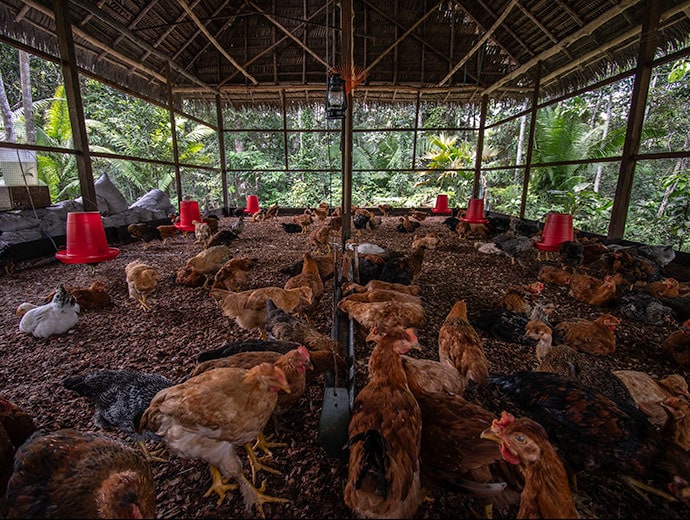
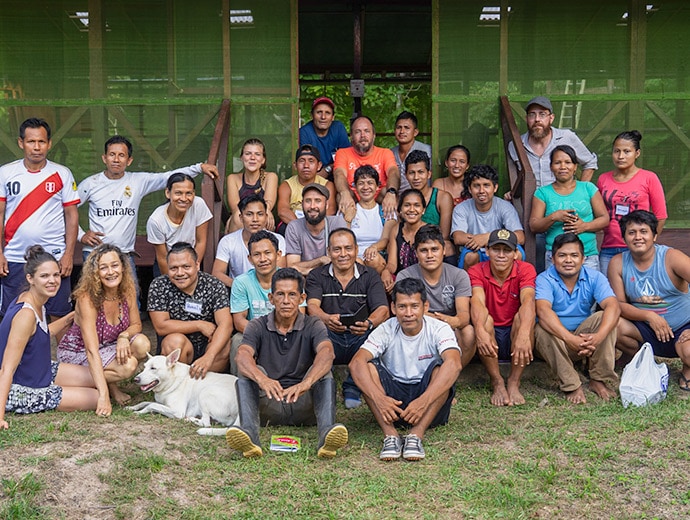
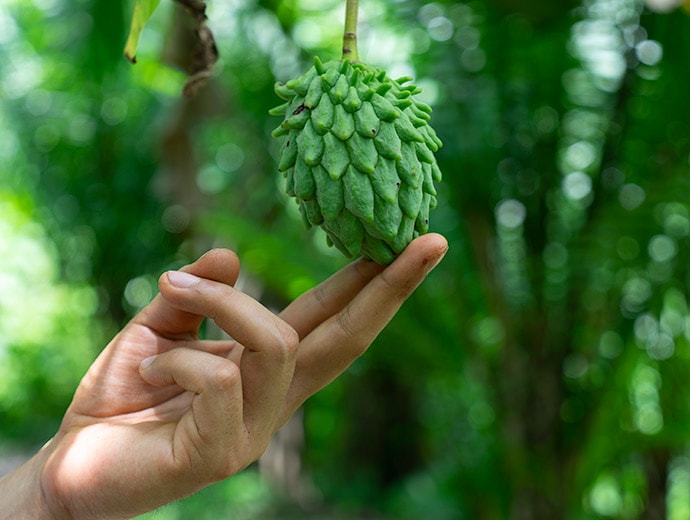
Spirituality in Action
Standing for reciprocity and leading the way in the ayahuasca scene, here is a summary of some of our accomplishments in local permaculture and regenerative agroforestry:
- Over 150 people (indigenous leaders, women, students, and local farmers) trained in regenerative agroforestry at our Permaculture Center
- 23 indigenous individuals (women, students, and community leaders) trained as agroforestry and native bee-keeping promoters in their communities.
- 6 indigenous students have completed officially recognized internships at our Center.
- We supported 68 families to enhance and enrich their traditional family plots, installing approximately 43 hectares of diverse agroforestry systems.
- We work in 10 Amazonian communities; in five local mestizo villages, in four indigenous Kukama communities and one indigenous Shawi community.
- We currently provide regular technical assistance to 32 families, 20 in the Marañón and 12 in the Nanay river basin.
- We also currently advise 5 indigenous organizations on regenerative agroforestry.
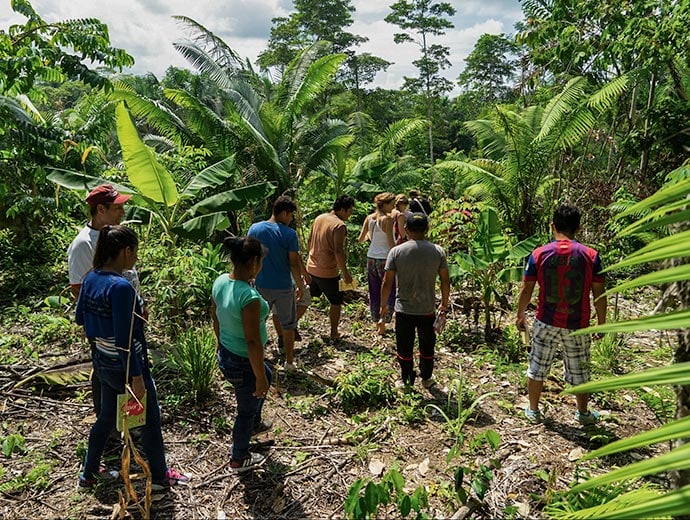
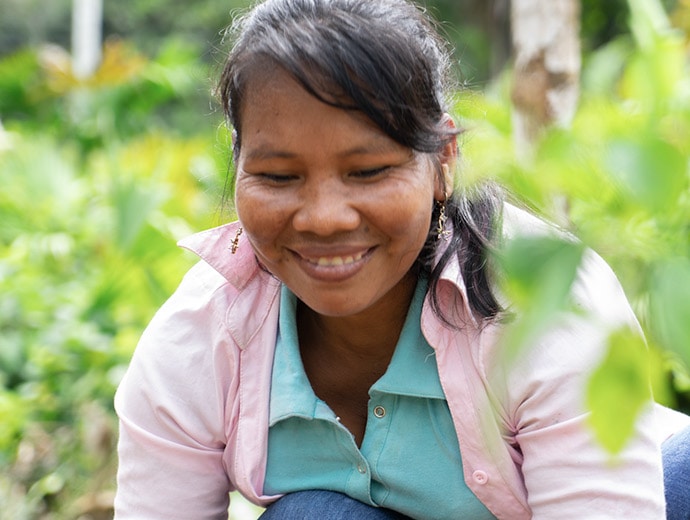
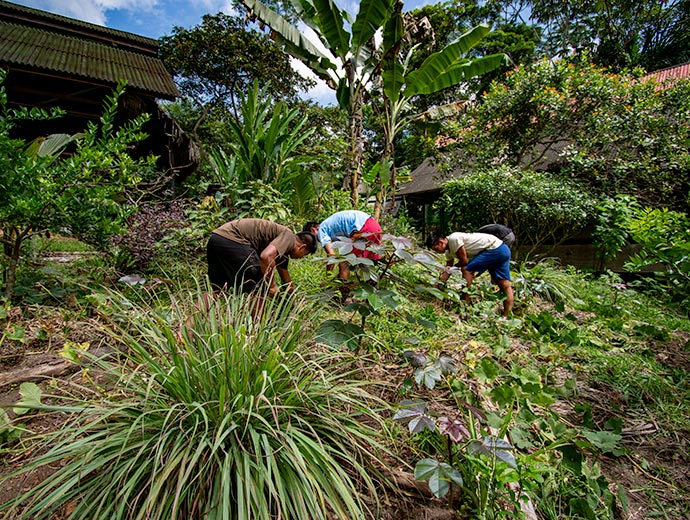
A Living Example
The Temple is a bustling place where inspiring experiences and widespread experimentation are commonplace. People come here to see and learn from the examples we implement onsite. All infrastructure on our site is built from sustainable construction materials and techniques, regenerative food production systems, and sustainable energy and water systems necessary for comfortable tropical living. New technologies and methods are tested before broad application to the entire Temple complex.
We ensure that our permaculture activities and educational opportunities are shared with our guests, locals from our neighbouring communities, as well as indigenous folk from further afield in the Amazon. We hold classes and workshops to share the information learned onsite. In addition, the site itself has “transparent educational design” components that people can learn from just by interacting.
For instance, a water system has been designed in such a way that people learn something about spring and rainwater collection and filtration every time they fill their water bottles. Our integrated waste management system using a series of giant biodigestors is also another example of a highly successful recycling project.
We transform our guests ‘waste’ from ayahuasca retreats – the ‘pain and trauma of the past’ – into the life giving fertiliser that supports the growth of new plant and tree life throughout our grounds.
